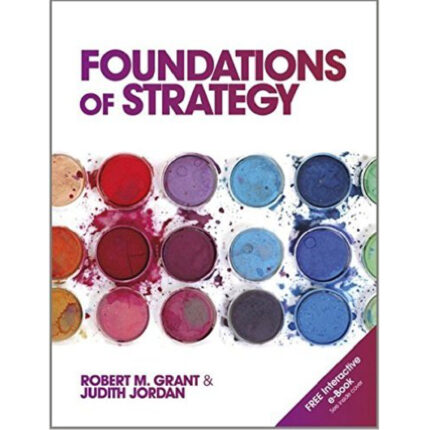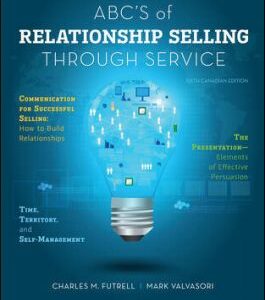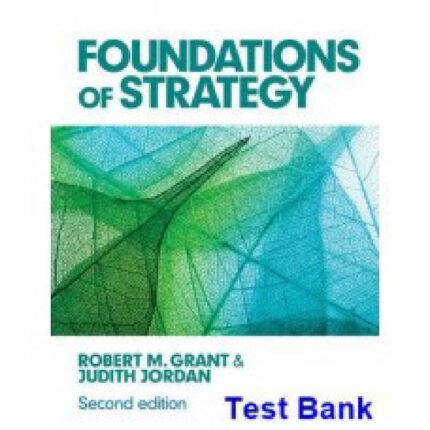Managing Human Resources 8th Edition By Gomez – Test Bank
Chapter 11 Rewarding Performance
1) It is most likely true that the use of pay-for-performance systems is:
A) increasing rapidly around the world.
B) declining due to implementation problems.
C) failing to motivate employees as employers had expected.
D) increasing slowly among small businesses in the high-tech industry.
Answer: A
Diff: 2
AACSB: Analytical thinking
Skill: Concept
LO: 11.1: Grasp the major challenges in pay for performance systems
2) What is the most common type of pay for performance used by firms?
A) Perks
B) Bonuses
C) Stock options
D) Nonmonetary rewards
Answer: B
Diff: 1
AACSB: Analytical thinking
Skill: Concept
LO: 11.1: Grasp the major challenges in pay for performance systems
3) A key assumption behind pay-for-performance compensation is that:
A) the importance of the job needs to be weighed in figuring the incentive.
B) the organization’s performance depends on individuals’ performance.
C) teams are not suitable “vehicles” for most corporate incentive programs.
D) accurate job evaluations and market surveys are critical to calculate incentives.
Answer: B
Diff: 3
AACSB: Analytical thinking
Skill: Concept
LO: 11.1: Grasp the major challenges in pay for performance systems
4) The “do only what you get paid for” syndrome is a potential problem tied to which of the following conditions?
A) Companies do not use a pay-for-performance strategy.
B) Employees help develop a pay-for-performance strategy.
C) Pay is closely tied to specific performance indicators.
D) Employee intrinsic drives are reinforced.
Answer: C
Diff: 2
AACSB: Analytical thinking
Skill: Concept
LO: 11.1: Grasp the major challenges in pay for performance systems
5) Camara and Jose always ask the professor in their American Government class exactly what will be on the next exam. They ask this question so that they can study for no more than they absolutely must. This is an example of:
A) the negative effects of pay-for-performance on the spirit of cooperation.
B) the “do only what you get paid for” syndrome.
C) negative psychological contracts.
D) an increase of intrinsic drives.
Answer: B
Diff: 3
AACSB: Analytical thinking
Skill: Application
LO: 11.1: Grasp the major challenges in pay for performance systems
6) Resources, Inc. has recently increased its emphasis on pay-for-performance. Within the last several months, there has been a sharp increase in employee competition and the sabotaging of projects. The incentive plan has most likely:
A) expanded the credibility gap.
B) decreased personal motivation.
C) discouraged employee cooperation.
D) diminished managerial powers over subordinates.
Answer: C
Diff: 2
AACSB: Analytical thinking
Skill: Application
LO: 11.1: Grasp the major challenges in pay for performance systems
7) What is the primary concern about physicians receiving incentives from pharmaceutical firms and state governments?
A) Doctors and nurses lacking time to see the most needy patients.
B) Doctors placing financial gain ahead of patient care.
C) Private health insurance becoming unaffordable.
D) Medicare and Medicaid running out of money.
Answer: B
Diff: 3
AACSB: Ethical understanding and reasoning
Skill: Concept
LO: 11.1: Grasp the major challenges in pay for performance systems
8) The experience of Century Telephone Company clearly showed that pay-for-performance programs may promote:
A) problems linking group and individual incentives.
B) ethical violations that led to employee lawsuits.
C) increases in employee conflicts and stress.
D) excessive union involvement.
Answer: C
Diff: 3
AACSB: Analytical thinking
Skill: Concept
LO: 11.1: Grasp the major challenges in pay for performance systems
9) Most employees at Sterling Enterprises work on a team. The firm is considering the implementation of a pay for performance plan. Which of the following would be the most likely challenge of such a plan?
A) Establishing an HR scorecard for each team
B) Isolating individual control over work processes
C) Separating individual contributions from team contributions
D) Creating a psychological contract between teams and the firm
Answer: C
Diff: 3
AACSB: Analytical thinking
Skill: Application
LO: 11.1: Grasp the major challenges in pay for performance systems
10) David is frustrated at his company’s inability to maintain a single system of pay-for-performance and is finding it difficult to adapt to new policies. David is probably:
A) encountering dissonance with his psychological contract.
B) recognizing an increase in his short-term intrinsic drives.
C) suffering from the “do only what you get paid for” syndrome.
D) receiving only financial rewards rather than nonfinancial rewards.
Answer: A
Diff: 2
AACSB: Analytical thinking
Skill: Application
LO: 11.1: Grasp the major challenges in pay for performance systems













Reviews
There are no reviews yet.